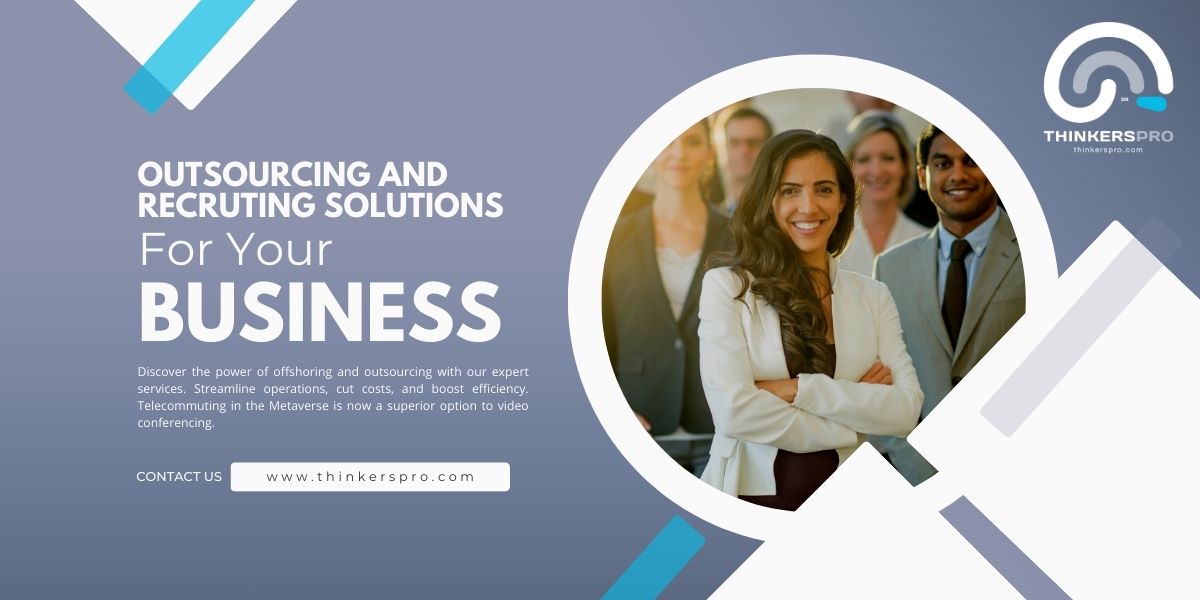The Imperatives for HR Outsourcing
The decision to outsource HR functions is driven by various imperatives. Firstly, it allows companies to access the latest technology and HR management practices without significant investment. This is particularly beneficial for small to mid-sized enterprises (SMEs) that may lack the resources of larger corporations. Moreover, HR outsourcing provides scalability, enabling businesses to adjust service levels in response to fluctuating demand, a feature that is especially valuable in rapidly changing markets. The overarching motivation, however, is the sharpened focus on core competencies. By entrusting HR tasks to specialized providers, companies can concentrate on their primary business activities, thus fostering innovation and growth.
Components of HR Outsourcing
- HR Administration: Includes payroll processing, benefits administration, and compliance management.
- Talent Management: Covers recruitment processes, training and development programs, and performance appraisals.
- Risk Management: Involves workplace safety programs, dispute resolution procedures, and adherence to labor laws.
Effective HR outsourcing partnerships are built on a foundation of mutual understanding and clear communication. This ensures that the HR services are tailored to the unique needs of the organization and integrated seamlessly with its culture and strategic goals.
Benefits and Challenges of HR Outsourcing
The benefits of HR outsourcing extend beyond cost savings; they include enhanced legal compliance, access to deep HR expertise, and improved employee experiences. Nevertheless, enterprises must approach this transition with diligence, ensuring that they partner with reputable providers and maintain an open line of communication. The challenges can include cultural misalignment, potential loss of control over certain HR functions, and the requirement for ongoing cooperation between the enterprise and the service provider. Such obstacles, however, can be navigated with thoughtful planning and clear service-level agreements.
In sum, HR outsourcing represents a pathway toward enterprise excellence, balancing strategic focus with a flexible workforce structure. As organizations increasingly recognize the importance of dynamic HR processes, they turn to specialized outsourcing partners to reinforce their position in the competitive market and drive long-term success.
Benefits of Tailored HR Solutions for Large Enterprises
Enhanced Recruitment and Onboarding
The acquisition of top-tier talent is a critical component for the success of any large enterprise. By leveraging tailored HR technologies, companies can attract, screen, and hire candidates more effectively. Customizable algorithms can match job descriptions with the right candidates, while tailored onboarding programs ensure new hires are integrated into the company culture swiftly and successfully. This personalized approach not only optimizes the recruitment process but also boosts retention rates by fostering a positive first impression.
Targeted Training and Development Programs
As employees are the backbone of any large organization, investing in their growth is imperative. Tailored HR solutions offer customized training and development programs that can be aligned with both enterprise goals and individual career aspirations. With scalable solutions, large enterprises can efficiently manage training logistics across different departments, regions, and job functions, leading to a more adept and knowledgeable workforce.
Compliance and Risk Management
With the ever-changing landscape of employment laws, maintaining compliance can be challenging for large firms. Tailored HR solutions can be instrumental in managing this complexity. They provide tools for tracking regulatory changes and ensure that company policies are updated accordingly. Such systems also offer reporting features that enable proactive resolution of potential compliance issues, mitigating risks and protecting the organization from costly legal entanglements.
Data Security and Employee Privacy
In an age where data breaches are unfortunately common, the significance of data security in HR can’t be overstated. Custom HR solutions offer robust security protocols tailored to the specific needs of a large enterprise, ensuring that sensitive employee data is protected with the highest standards. This commitment to privacy strengthens trust between the organization and its employees, forming the foundation for a reliable and secure work environment.
Key Considerations in HR Outsourcing for Enhanced Organizational Performance
Key Considerations in HR Outsourcing for Enhanced Organizational Performance
Defining Your HR Outsourcing Objectives
Outsourcing HR functions can significantly contribute to the efficiency and strategic focus of an organization. When considering HR outsourcing, it’s crucial to clearly identify and define objectives. Ask yourself what you hope to achieve. Are you looking to save costs, access specialized expertise, improve compliance, or enhance HR service delivery? Establishing these goals upfront will serve as a guidepost for selecting the right outsourcing partner and will set the framework for a successful collaboration.
Evaluating Provider Expertise and Experience
Once clear objectives are set, it’s essential to evaluate the expertise and experience of potential HR outsourcing providers. A reputable provider should have a proven track record in handling HR functions effectively and should be well-versed in your industry’s specific challenges and regulations. Delve into their case studies, request references, and take the time to discuss past problem-solving scenarios to ensure they align well with your company’s needs and culture.
Understanding the Scope of Services Offered
It’s important to understand the full scope services offered by HR outsourcing providers. These services can range from payroll management and benefits administration to recruitment and employee training. Determine which services are most aligned with your strategic objectives — this alignment will play a pivotal role in the provider’s ability to add value to your organization.
Assessing the Impact on Employee Experience and Company Culture
HR functions are at the heart of employee experience and company culture. Outsourcing these functions can lead to significant changes, for better or worse. Carefully consider how an outsourced provider will impact your workforce. Will they be able to maintain or even enhance the personal touch that’s crucial for employee satisfaction and retention? Make sure to communicate with stakeholders and involve them in the decision-making process, as their buy-in will be key to a smooth transition.
Creating a Transition Plan
Effective outsourcing requires a well-thought-out transition plan to ensure minimal disruption to operations. This plan should include a timeline, outline role changes within the existing HR department, and identify the necessary training for a seamless handover. Additionally, continuous communication throughout the process ensures everyone is informed of upcoming changes, further mitigating risks associated with the transition.
Ensuring Compliance and Data Security
Delegating HR responsibilities includes the transfer of sensitive data. It’s imperative to ensure that the HR outsourcing provider has robust data security measures in place. They must be compliant with data protection regulations applicable in your industry and location. Assess their data security protocols, encryption standards, and their history of compliance. Don’t shy away from asking tough questions, as the protection of employee data is of utmost importance.
Considering Legal Implications and Service Agreements
Understanding the legal implications and ensuring a comprehensive service agreement can safeguard your organization from potential risks. The agreement should clearly outline roles, responsibilities, and performance metrics. It should also address the process for handling conflicts, data breaches, and service failures. Legal counsel can assist in drafting and reviewing contracts to confirm all bases are covered.
Analyzing the Impact of HR Outsourcing on Enterprise Excellence
As companies continue to seek competitive edges in an ever-evolving market, human resources (HR) outsourcing has surfaced as a strategic move for many. The concept of delegating HR functions to external specialists is not new, but its implications on enterprise excellence demand a deeper analysis. In this discourse, we assess how HR outsourcing can influence different dimensions of organizational performance and efficiency.
The Benefits of HR Outsourcing
Cost Savings: Outsourcing HR functions can lead to significant cost savings for enterprises. By transferring responsibilities such as payroll, benefits administration, and recruitment to external providers, businesses can reduce overhead costs. A streamlined HR expenditure often translates into a lower price point for services, allowing companies to reinvest in core business activities.
Access to Expertise: Small to medium-sized enterprises, in particular, may find that outsourcing provides access to expertise that would otherwise be cost-prohibitive to acquire in-house. External HR firms bring specialized knowledge of legal compliance, training, and human capital management—ensuring the enterprise is at the forefront of HR best practices.
Scalability: HR outsourcing affords businesses the flexibility to scale services up or down based on their current needs. This elasticity is particularly advantageous for enterprises experiencing rapid growth or seasonal fluctuations in staffing requirements.
Challenges and Considerations
While there are benefits, outsourcing HR does come with its considerations. Companies must thoroughly vet potential HR partners to ensure they align with the enterprise’s culture and values. There is also the risk of diminished control over HR functions, which can impact employee satisfaction and retention if not managed correctly.
Moreover, dependence on an external provider can raise concerns about data privacy and security, especially concerning sensitive employee information. It is critical for enterprises to establish robust data protection agreements with HR outsourcing companies to mitigate these risks.
Maximizing HR Outsourcing Potential
To maximize the positive impact of HR outsourcing on enterprise excellence, organizations must engage in strategic planning and continuous collaboration with their HR partners. This includes setting clear objectives, establishing performance metrics, and maintaining open lines of communication.
Additionally, integrating the external HR functions seamlessly with internal processes is crucial for a cohesive workforce management strategy. Only with a united front can enterprise excellence be pursued through the strategic utilization of HR outsourcing.
Conclusively, HR outsourcing presents a valuable opportunity for companies aiming to enhance their operational excellence. While it requires careful consideration and prudent management, the strategic allocation of HR functions to external experts can lead to improved productivity, adaptability, and ultimately, a stronger competitive position.
Strategies for Implementing a Successful HR Outsourcing Model
Consider the scale of your needs—small businesses may find full-service HR outsourcing beneficial, while larger companies might opt for selective outsourcing of complex tasks like tax compliance or benefits administration. At this juncture, setting clear objectives can be instrumental to the successful implementation of an HR outsourcing model, ensuring alignment with your business’s broader goals.
Selecting the Right HR Outsourcing Partner
Choosing an HR outsourcing partner is a pivotal decision with long-term implications for your organization. It’s not merely about cutting costs but enhancing the quality of HR services delivered to your employees. Research potential partners with a meticulous eye, prioritizing those with a robust track record in your industry. Reputable outsourcing firms will not be reticent to share case studies or connect you with current clients.
Once you’ve shortlisted the contenders, scrutinize their service offerings. Ensure that they provide scalable solutions that can adapt to the evolving needs of your enterprise. Verify their compliance expertise, especially in areas vulnerable to legal complexities. Remember to evaluate their technological prowess—innovative tools and platforms can be the linchpin for efficiency in HR processes. Furthermore, trustworthy HR outsourcing partners should foster transparency, seamless communication, and share a commitment to confidentiality.
Ensuring a Smooth Transition
Communicate Changes and Set Expectations
As you embark on implementing your chosen HR outsourcing model, clear and consistent communication becomes indispensable. Engage with your team to relay the benefits of this transition and how it will streamline operations and foster a supportive work environment. Lay out the changes in precise terms, setting realistic expectations on the roles and responsibilities of the outsourcing partner.
Manage the Change with Care
Change can be daunting, and a poorly managed transition can result in disruption and unease across the organization. Develop a transition plan that not only introduces the outsourcing partner to your internal workflows but also pays attention to detail in the transferring of processes. Offer continuous support and training to your staff to ensure synergy and counteract any sense of insecurity or concern about the new operational model.
Monitoring Performance and Maintaining Relationships
The journey of HR outsourcing does not end with the initiation of the contract. To extract the maximum value from this model, ongoing monitoring, and an open feedback mechanism are a must. Establish clear performance metrics that align with your business objectives. Review these metrics periodically to assure that your HR outsourcing model is indeed delivering as promised.
Potent partnerships are cultivated over time, with mutual respect and understanding. Encourage an open dialogue with your outsourcing provider to sustain a proactive and mutually beneficial relationship. Periodically review contract terms, anticipating adjustments as your business grows and evolves. By maintaining a collaborative approach, you can leverage your HR outsourcing partner’s expertise effectively while driving continuous improvement.













0 comentarios